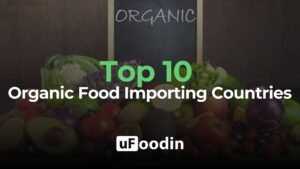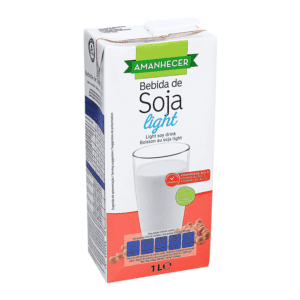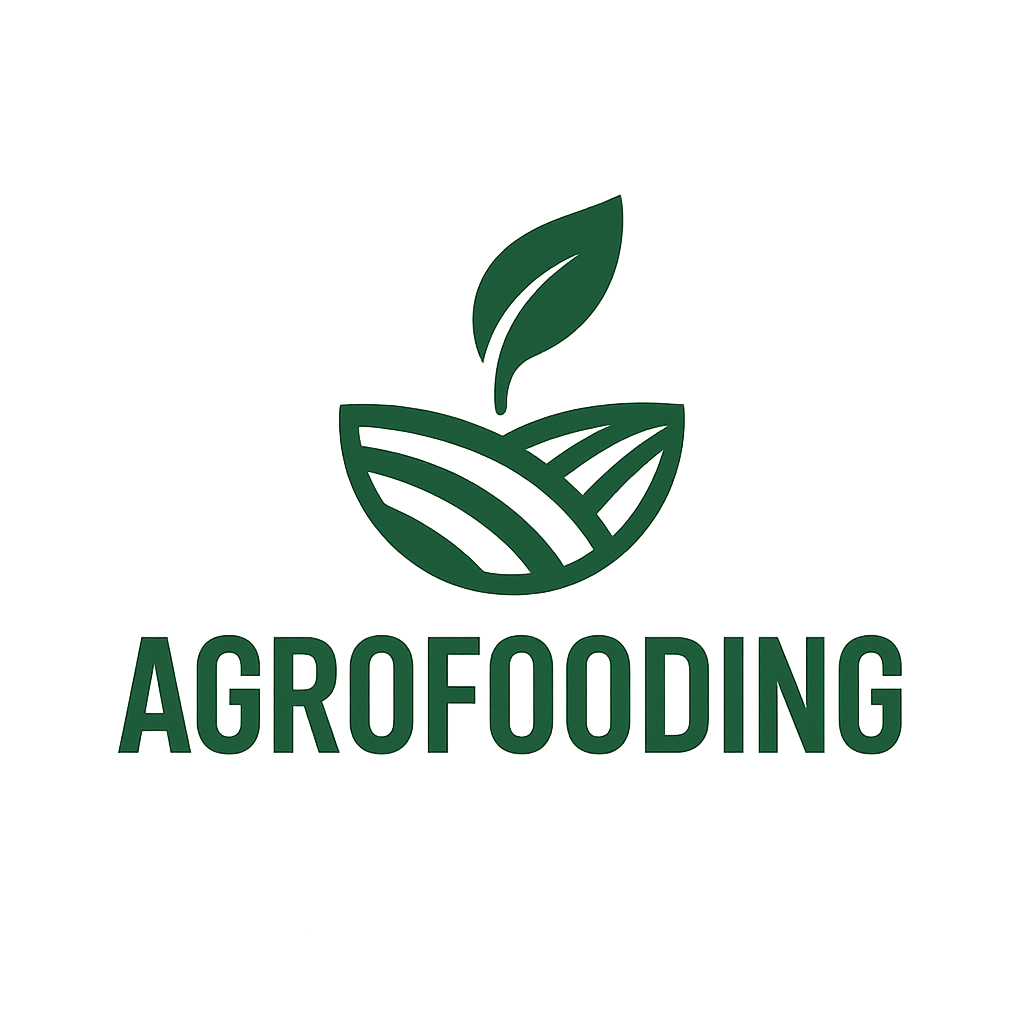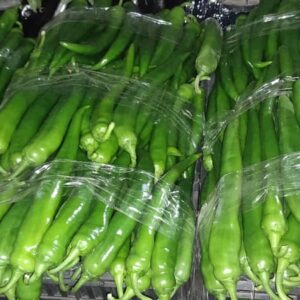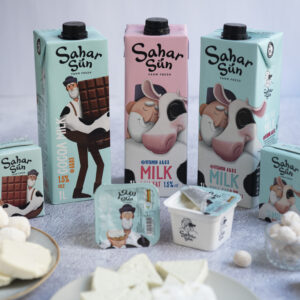
Top 10 Bakery Product Companies
The bakery industry is not only a staple of daily consumption but also a dynamic sector undergoing continuous transformation. With a global market value of $435.3 billion in 2023 and projections to surpass $600 billion by 2030, the bakery sector represents a significant contributor to the global food economy. The rise of convenience foods, coupled with the growing demand for healthier, premium, and artisanal baked goods, drives this growth. The sector’s diversity ranges from traditional bread and pastries to innovative products like gluten-free, vegan, and high-protein options, reflecting evolving consumer preferences.
The industry is also being reshaped by technological advancements, sustainability efforts, and a surge in digital sales. Online platforms have seen a CAGR of 9% in bakery product sales over recent years, as consumers increasingly prioritize convenience and accessibility. Furthermore, the increasing influence of emerging markets, particularly in Asia-Pacific, is contributing to a robust growth trajectory, with urbanization and Western food trends boosting demand for packaged and specialty bakery items.
These developments make the bakery sector one of the most exciting and fast-evolving segments of the global food industry, with top companies leading the way in innovation, sustainability, and market expansion.

- Grupo Bimbo
- Headquarters: Mexico City, Mexico
- Why It Stands Out: Grupo Bimbo is the largest bakery company in the world, offering a diverse portfolio of bread, cookies, and packaged baked goods across over 30 countries.
- Key Innovations: Focus on sustainability through renewable energy initiatives and eco-friendly packaging.
- Mondelez International
- Headquarters: Chicago, Illinois, USA
- Why It Stands Out: Mondelez is a global leader in snacks, with brands like Oreo, Chips Ahoy, and Ritz dominating the baked goods segment.
- Key Innovations: Introduction of healthier snack options, including reduced-sugar and whole-grain products.
- Yamazaki Baking Co. Ltd.
- Headquarters: Tokyo, Japan
- Why It Stands Out: As the largest bakery company in Asia, Yamazaki Baking specializes in fresh bread, pastries, and desserts.
- Key Innovations: Adoption of advanced automation in production and expansion into premium baked goods.
- Aryzta AG
- Headquarters: Schlieren, Switzerland
- Why It Stands Out: Aryzta is a leading supplier of frozen bakery products to retailers, foodservice providers, and QSRs worldwide.
- Key Innovations: Development of artisanal frozen bread and allergen-free options.
- Flowers Foods
- Headquarters: Thomasville, Georgia, USA
- Why It Stands Out: Known for brands like Nature’s Own and Dave’s Killer Bread, Flowers Foods emphasizes natural and organic ingredients.
- Key Innovations: Expansion into plant-based and gluten-free baked goods.
- Rich Products Corporation
- Headquarters: Buffalo, New York, USA
- Why It Stands Out: Rich Products is a global leader in frozen bakery items, catering to foodservice and retail sectors.
- Key Innovations: Introduction of vegan and allergen-free dessert lines.
- Britannia Industries
- Headquarters: Bengaluru, India
- Why It Stands Out: Britannia is a household name in India, known for its biscuits, bread, and cakes.
- Key Innovations: Investment in fortified baked goods to address nutritional deficiencies.
- Associated British Foods (ABF)
- Headquarters: London, United Kingdom
- Why It Stands Out: ABF owns brands like Kingsmill and Jordans, excelling in bread and cereal-based baked products.
- Key Innovations: Emphasis on low-sugar and wholegrain bread products.
- Campbell Soup Company (Pepperidge Farm Division)
- Headquarters: Camden, New Jersey, USA
- Why It Stands Out: Pepperidge Farm is synonymous with premium cookies, crackers, and frozen baked goods.
- Key Innovations: Introduction of small-batch, artisan-style baked products.
- General Mills
- Headquarters: Minneapolis, Minnesota, USA
- Why It Stands Out: Known for Pillsbury and Betty Crocker, General Mills dominates the ready-to-bake and cake mix categories.
- Key Innovations: Expansion of organic and non-GMO baking mixes.
Major Trends in the Bakery Industry
- Demand for Health-Conscious Products
Consumers are increasingly seeking bakery items that align with health and wellness goals. The market for low-sugar, high-fiber, and protein-enriched baked goods is growing rapidly, particularly in North America and Europe, where health-consciousness is most prominent. The global gluten-free bakery market alone is projected to grow at a CAGR of 7.3%, reaching $7.6 billion by 2030.
- Rise of Plant-Based Bakery Products
Vegan and dairy-free baked goods are seeing exponential growth as plant-based diets become mainstream. Companies are leveraging innovations in alternative proteins and non-dairy ingredients to create high-quality plant-based bakery items, catering to a projected CAGR of 9.2% in the plant-based food segment.
- Expansion of Premium and Artisanal Goods
Artisanal and specialty baked goods are becoming a status symbol for quality-conscious consumers. The demand for small-batch, handcrafted breads and pastries has spurred investments in boutique bakeries and premium offerings from large brands.
- Growth of Frozen and Packaged Bakery Products
Convenience remains a key driver of growth in the bakery sector. Frozen and packaged bakery products are gaining popularity due to their extended shelf life and ease of preparation, particularly in urban areas where time-constrained consumers prioritize ready-to-eat options.
- Integration of Technology
The adoption of robotics, AI, and IoT in bakery production is enhancing efficiency and consistency. Technologies like predictive analytics are being used to manage supply chains, optimize inventory, and minimize waste.
- Sustainability Initiatives
Sustainability is becoming a non-negotiable for bakery companies, with consumers prioritizing brands that commit to eco-friendly practices. This includes the use of recyclable packaging, renewable energy in production, and reducing food waste across the supply chain.

Main Challenges in the Bakery Industry
- Rising Raw Material Costs
The fluctuating prices of key ingredients like wheat, sugar, and butter pose a significant challenge for bakery companies. For instance, global wheat prices surged by over 20% in 2023 due to geopolitical tensions and supply chain disruptions, directly impacting production costs.
- Meeting Diverse Consumer Preferences
The bakery industry must cater to a wide range of dietary preferences, from gluten-free and vegan to low-carb and keto. Balancing innovation with tradition is a challenge, especially in regions where traditional baked goods dominate consumer preferences.
- Supply Chain Vulnerabilities
The bakery sector relies heavily on a smooth supply chain for raw materials and finished goods. Disruptions caused by global events such as pandemics, geopolitical tensions, and climate-related disasters can result in increased costs and delayed deliveries.
- Competition from Local and Artisanal Brands
Large bakery companies face stiff competition from small-scale and local artisanal bakeries, which attract consumers with unique, high-quality products and personalized experiences.
- Environmental Impact
Baking is an energy-intensive process, and the environmental footprint of large-scale bakery operations is under scrutiny. Companies need to invest in sustainable practices and renewable energy sources to meet consumer expectations and regulatory requirements.
- Regulatory and Compliance Challenges
Varying food safety regulations and labeling requirements across countries make compliance a complex and resource-intensive task, especially for companies operating globally.
The Top 10 Bakery Product Companies represent the pinnacle of innovation, quality, and market leadership in the global bakery sector. From Grupo Bimbo’s sustainability initiatives to Yamazaki Baking’s technological advancements, these companies are setting the benchmarks for the industry.
Platforms like uFoodin are vital for connecting bakery producers with global distributors and retailers, fostering collaborations that drive growth and innovation. Smaller bakery brands can use uFoodin to gain international visibility, while established companies can explore opportunities to diversify their portfolios and enter new markets.
As the bakery industry evolves, embracing trends like health-focused innovations, plant-based alternatives, and premiumization will be critical to meeting consumer expectations. By addressing challenges such as ingredient costs and sustainability, bakery brands can secure their position in a rapidly changing market.
uFoodin Editorial Team
Bibliography
- Statista: Global Bakery Products Market Insights and Projections
- Grand View Research: Bakery Products Market Size and Forecast
- Fortune Business Insights: Global Bakery Products Market Report
- Expert Market Research: Global Bakery Products Market Trends
- IMARC Group: Bakery Products Market Overview and Growth Factors
- Future Market Insights: Analysis of Plant-Based Bakery Products

